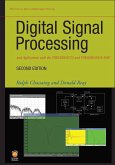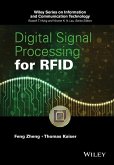With recent outbreaks of multiple large-scale financial crises, amplified by interconnected risk sources, a new paradigm of fund management has emerged. This new paradigm leverages "embedded" quantitative processes and methods to provide more transparent, adaptive, reliable and easily implemented "risk assessment-based" practices. This book surveys the most widely used factor models employed within the field of financial asset pricing. Through the concrete application of evaluating risks in the hedge fund industry, the authors demonstrate that signal processing techniques are an interesting alternative to the selection of factors (both fundamentals and statistical factors) and can provide more efficient estimation procedures, based on lq regularized Kalman filtering for instance. With numerous illustrative examples from stock markets, this book meets the needs of both finance practitioners and graduate students in science, econometrics and finance. Contents Foreword, Rama Cont. 1. Factor Models and General Definition. 2. Factor Selection. 3. Least Squares Estimation (LSE) and Kalman Filtering (KF) for Factor Modeling: A Geometrical Perspective. 4. A Regularized Kalman Filter (rgKF) for Spiky Data. Appendix: Some Probability Densities. About the Authors Serge Darolles is Professor of Finance at Paris-Dauphine University, Vice-President of QuantValley, co-founder of QAMLab SAS, and member of the Quantitative Management Initiative (QMI) scientific committee. His research interests include financial econometrics, liquidity and hedge fund analysis. He has written numerous articles, which have been published in academic journals. Patrick Duvaut is currently the Research Director of Telecom ParisTech, France. He is co-founder of QAMLab SAS, and member of the Quantitative Management Initiative (QMI) scientific committee. His fields of expertise encompass statistical signal processing, digital communications, embedded systems and QUANT finance. Emmanuelle Jay is co-founder and President of QAMLab SAS. She has worked at Aequam Capital as co-head of R&D since April 2011 and is member of the Quantitative Management Initiative (QMI) scientific committee. Her research interests include SP for finance, quantitative and statistical finance, and hedge fund analysis.
Dieser Download kann aus rechtlichen Gründen nur mit Rechnungsadresse in A, B, BG, CY, CZ, D, DK, EW, E, FIN, F, GR, HR, H, IRL, I, LT, L, LR, M, NL, PL, P, R, S, SLO, SK ausgeliefert werden.









